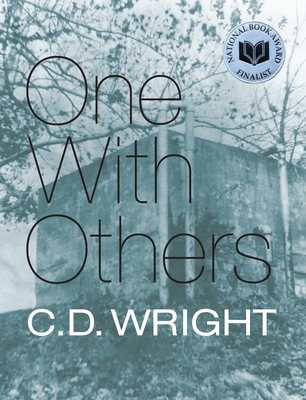 Investigative journalism is the poet's realm when C.D. Wright returns to her native Arkansas and examines an explosive incident from the Civil Rights movement. Wright interweaves oral histories, hymns, lists, newspaper accounts, and personal memories--especially those of her incandescent mentor, Mrs. Vititow--with the voices of witnesses, neighbors, police, activists, and black students who were rounded up and detained in an empty public swimming pool. This history leaps howling off the page.
Investigative journalism is the poet's realm when C.D. Wright returns to her native Arkansas and examines an explosive incident from the Civil Rights movement. Wright interweaves oral histories, hymns, lists, newspaper accounts, and personal memories--especially those of her incandescent mentor, Mrs. Vititow--with the voices of witnesses, neighbors, police, activists, and black students who were rounded up and detained in an empty public swimming pool. This history leaps howling off the page.April says:
"I was first introduced to Wright and her fever dream, elegiac sense of poetry in an ill-lit classroom at Western Michigan University--the farthest, I believe, one can get from the sweltering segregated south she conjures. And I have come to deeply appreciate her rendition of an epic poem.
In her latest book, One with Others, Wright creates a sort of visual poetic documentary
of the Civil Rights Movement as it travels through small town Arkansas. The book focuses
on a single event in 1969, Sweet Willie Wine's Walk Against Fear, and the way this walk shook and shaped the Delta town for years. Wine believed 'If white people can ride down their highways with guns, I can walk down the highway unarmed'. But as one reads one learns that peaceful action can wreak its own special sort of havoc. Wright tells the reader the story of Joe Williams, a black man, who (in the days before his deployment to Vietnam) decided to integrate the local bowling alley with a couple of his friends; they parked their truck in the parking lot and walked inside. The sound of the truck being knocked over on its side by the crew of 'Concerned Citizens' reached them as they loosed their solitary bowling ball, walked out, righted the truck, and drove off. The bowling alley was burned down soon after.
It's a book about division between people and the way we have politely paved over it in the last few decades. (The picture on the cover is actually of a pump house, grown over with vines, that once fed water into the local White Only pool; the pool has since become a parking lot.)
One with Others is also an elegy to V., Wright's goombah, her mentor. During Wine's Walk, V. (a white Catholic local woman) carried the water and the shoes in her car. For this action, she was ostracized; friends call it 'crossing over'; she was as good as dead to the community, so she was forced out of her home, her town, even her state. One cannot read this book and feel the loss of never having met V. in person. She is drawn so sharply by what she has on her shelves to what she has chosen to write on the walls of her Hell's Kitchen apartment, that she leaps at the reader from the page, and says, 'You have your life until you use it.'
In the end, this is an epic book. Wright will draw any reader into this account--poet or
not."
No comments:
Post a Comment